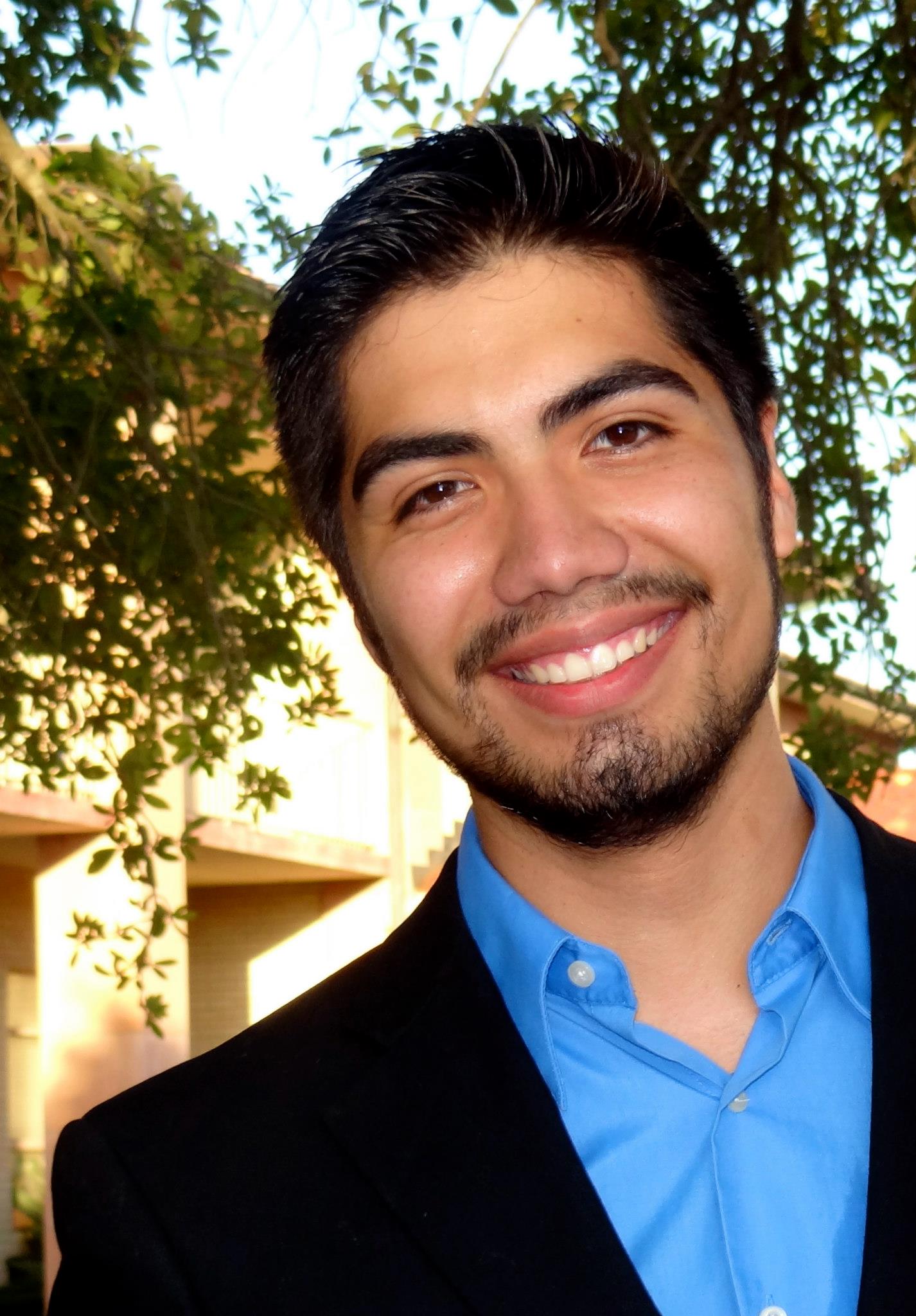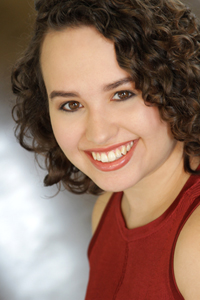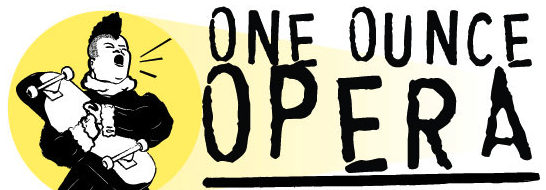OOO is happy to introduce Michael Mikulka, who penned both a short cycle for tenor and solo song for soprano. These winning pieces will be performed at the Inaugural Fresh Squeezed Ounce of Art Song on Fri, Nov 18. Danny Castillo, who will sing “A Wind Among the Reeds,” and Brittany Santos, who will sing “I Am Vocalist,” had these questions for the composer:

Danny: You have such a dynamic repertoire of compositions which include these large, orchestral, high-intensity pieces such as your Krikkit Variations. Do you find any special challenges when writing music in a smaller scale, such as art song, in terms of compositional and musical tools and techniques available to you?
Michael: Thank you! There are a lot of differences in the way I approach writing for large ensembles and the way I approach writing an art song. One obvious change is timbre: with a large ensemble (especially a wind band or full orchestra), you can make interesting color combinations with ease because you have such a wide variety of instruments at your disposal. When writing for voice and piano, most of the color comes from the vocal (and piano) register, the consonant/vowel sounds of the lyrics, and the texture and chord spacing of the piano, so it’s much more about the details.
Some melodies or musical ideas work best in chamber music, some work best for a large scale work, and some will work well in either format. Smaller instrumentations tend to benefit from music that feels as if it’s a story being told by one person. Any melody or accompaniment figure played by only one performer is going to sound more personal and intimate than if it is being played by several people. The intimacy of art songs generally allows for the melodies and accompaniment figures to have more subtlety and more room for interpretation.
When there are lyrics, clarity in the vocal line is necessary, which requires the piano part to play a secondary role whenever the vocalist is singing. In addition, the listener’s focus will typically be directed more at the vocalist. These factors make it more challenging to balance the piano part. It needs to be interesting and have some complexity, but not so much that it distracts from the voice. The piano and vocal parts also need to relate to each other, but the piano often has to be subservient. I think the two pieces I have on this concert approach this challenge in very different ways.
D: You write so well for the voice. Do you see any operatic engagements in your future? Is that a genre of music that you would like to explore?
I would love to write an opera (or possibly a musical or some hybrid of the two). It’s such a time-consuming thing to do and it’s extremely challenging to line up a first performance, so I’m probably going to have to wait until somebody commissions me. I do have a pair of ideas floating around, though, and every year or so, I plan them out a little bit more. At some point, I’d like to write a one act opera with a condensed orchestration, but the ideas I currently have are both large scale.

Brittany: What type of character did you have in mind for “I Am Vocalist,” and did you have a specific inspiration behind this character?
M: There are plenty of negative stereotypes for different types of musicians: “low brass players are crude, dumb, and often drunk.” “Flute players are shallow and flaky.” “Trumpet players think they’re the greatest and make sure everybody else knows.” “Percussionists are impatient, mentally unstable, and can’t read music.” “Vocalists take liberties with the music to hide their technical shortcomings: they can’t sing in rhythm or do anything that is harmonically challenging. That’s why all they ever sing is the same small group of Italian, German, and French art songs.” “Most instrumentalists think they could become a successful vocalist with a few weeks of practice and a diction class.”
Sopranos are “the most extreme of all the vocalists:” some musicians would suggest that they have the “morals and restraint of a trombone player,” the “ditziness of a flutist,” the “self-importance of a trumpeter,” and the “patience and ear-training skills of a percussionist.” Oh, and they’re also “drama queens who require the spotlight at all times.”
With “I Am Vocalist”, I envisioned a soprano character who fights back against these offensive stereotypes about vocalists’ technique and ability, while proudly delighting in a few of the others.
Slightly less important (as usual), is the sarcastic and passive aggressive piano accompanist (collaborative pianist!!), who harbors more than a little resentment at the tiny fraction of their ability which is being utilized.
B: Who are your major influences in composition and what parts in the piece were inspired by those influences?

M: When I have to name my biggest influences or favorite composers (we composers get asked this every few weeks), I normally mention Ravel, Stravinsky, Prokofiev, and Shostakovich. However, “I Am Vocalist” is nothing like their music (with the possible exception of Shostakovich’s sarcasm). This led me to thinking about some of my other influences.
Here are a few aspects of other composers’ music that I think influenced “I Am Vocalist”:
-Mozart’s clarity, structure, and pompous self-satisfied giddiness
-The lightness of the tone in Gilbert + Sullivan songs, and how the vocalist is really placed front and center
-The “I can sing just one note” concept was influenced by a vocal composition by Philip Rice
There’s much more influence in this piece than that, though. Whenever we compose, we’re influenced not only by the other music we’ve heard, but also by our non-musical tastes and experiences. The balance between “musical influences” and “non-musical influences” varies from piece to piece, which is something I wasn’t really actively aware of until I thought about this question. For me, the content of this piece is towards the “non-musical influences” extreme of the continuum: “I Am Vocalist” is probably a good lens for how influences in my life have shaped the way in which I express playfulness, sassiness, pride, and sarcasm.
_________
Michael Mikulka recently completed his DMA in Composition at the University of Texas, where he studied with Donald Grantham, Russell Pinkston, Yevgeniy Sharlat, and Dan Welcher. He completed his MM in Composition at Central Michigan University (studying with David Gillingham), and received his undergraduate degree in Music Education from Rutgers University, where he co-founded the Rutgers Undergraduate Composers Recital.
Over 25 of Michael’s compositions have been honored as a winner or finalist in competitions or calls for scores. His pieces have been performed by members of the Dallas Symphony Orchestra, Seattle Symphony, Vancouver Symphony Orchestra, and New Jersey Symphony Orchestra, as well as by the performance faculty of several major universities.
Michael is the founder of newbandmusic.com and newchambermusic.org, free services which promote self-published music written by emerging composers. He was also the creator and conductor of the Vine Orchestra, which premiered over 50 (six second or less) compositions. Michael is a horn player, and has recently performed with the UT Wind Ensemble, Symphony Orchestra, and Horn Choir, as well as premiering several solo and chamber pieces.
Find out more about Michael!
http://www.michaelmikulka.com/
Twitter: @Michael_Mikulka

